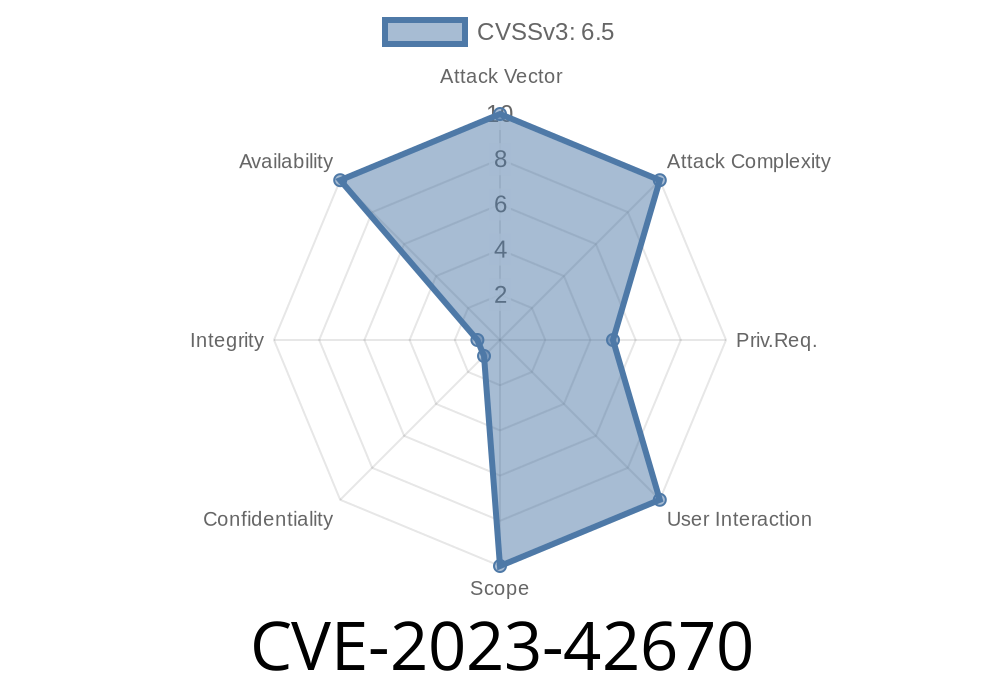When it comes to managing Windows networks in Linux environments, Samba is the go-to suite providing seamless interoperability between Unix/Linux and Windows systems. However, no software is flawless, and in 2023, a significant vulnerability—CVE-2023-42670—was identified. This flaw doesn’t just cause minor headaches; it can severely disrupt core network authentication services by causing confusion within Samba’s RPC (Remote Procedure Call) infrastructure.
Let’s break down what happened, how it works, walk through its implications, and show some code snippets and references for those who want the deep details.
The Vulnerability In Simple Terms
In plain English:
Due to a logic bug in Samba’s handling of RPC servers, it’s possible to unintentionally start several “listeners” that are supposed to serve the same role—but aren’t speaking the same language. Instead, they clash, causing odd and critical failures in how your Active Directory Domain Controller (AD DC) works.
The problem triggers mostly under high load or if something causes the RPC server to freeze or become unresponsive. Then, services meant for classic NT4-style domains (not Active Directory) start duplicating the sockets that the AD DC also needs. As they fight for control, the end result? Partial or broken responses to domain queries, and Active Directory tools fail with errors like “The procedure number is out of range”.
In less than 60 seconds, an attacker (or even just a malfunction or admin mistake) can cause havoc for users and admins.
Any new AD or RPC-based query might go to the wrong server.
- That wrong server doesn’t know how to interpret modern AD traffic, so queries fail or only get partly answered.
5. End users and admins see errors.
- Things like "The procedure number is out of range" appear in tools such as Active Directory Users & Computers.
Example Code: Checking for Multiple Listeners
For system admins and devs, how would you spot this? Here’s a simple bash script to check for multiple competing Samba listeners on the same socket:
#!/bin/bash
# Check for Unix domain sockets used by Samba
echo "Active Unix domain sockets for 'samba':"
lsof -U | grep samba
# List all Samba RPC server processes
echo "Running Samba RPC servers:"
ps aux | grep '[s]amba' | grep 'rpc'
# Examine which PID is holding the main socket (replace '/path/to/socket' accordingly)
SOCKET="/usr/local/samba/var/run/samba/smbd.sock"
lsof | grep "$SOCKET"
Exploit Details: How an Attacker Takes Advantage
An attacker with local access (or on misconfigured systems, even remotely if public transport like SMB or RPC is exposed) can:
Wait for classic Samba DC listeners to start (could be automated via scripts or triggered manually).
3. The "double bind" of listeners on the same socket means they now have a good chance of corrupting AD traffic.
Users (including admins) are now locked out, and tools receive broken, confusing responses.
This is not a remote code execution bug, but it is a denial-of-service (DoS)— attackers can break your domain controller’s basic operations.
Mitigations and Fixes
The Samba team has released a patch that prevents multiple incompatible listeners starting up and fighting over the same sockets. Until patched, admins are advised to:
Ensure only one Samba role is configured (either AD DC or NT4 classic—not both).
- Monitor for strange error messages, especially “The procedure number is out of range” from AD tools.
Restrict local access to Samba servers to trusted staff only.
More details and the official security advisory can be found here:
- Samba Security Advisory for CVE-2023-42670
- Samba Bug #15441
- NIST National Vulnerability Database: CVE-2023-42670
Summing Up
CVE-2023-42670 is a classic case of how resource contention can trigger security failures even without code injection or privilege escalation. If you run a Samba AD DC, patch quickly, and check for unexpected listeners or conflicting configurations. Awareness is your best defense—if your AD DC goes unresponsive or sends strange errors, the cause might be this silent but serious bug.
Timeline
Published on: 11/03/2023 08:15:07 UTC
Last modified on: 11/24/2023 09:15:08 UTC
